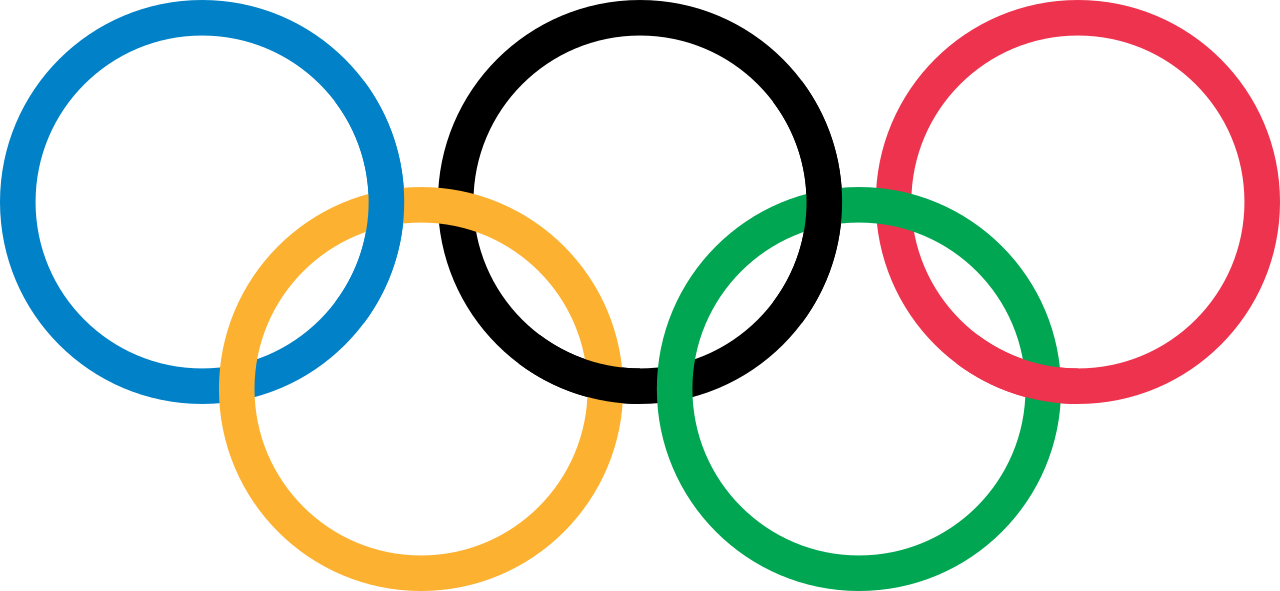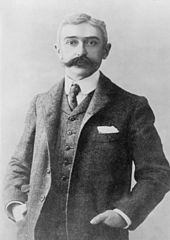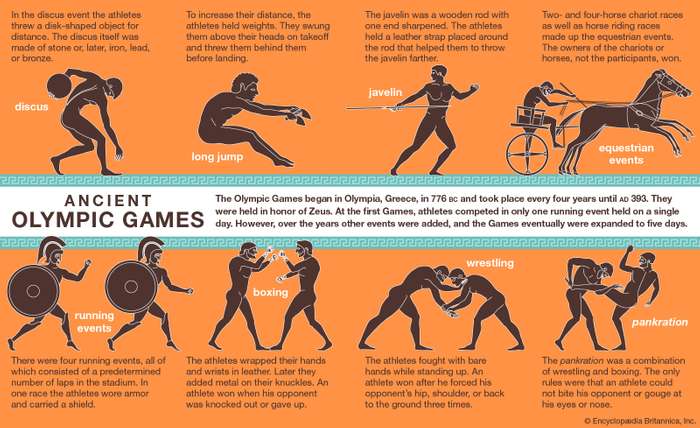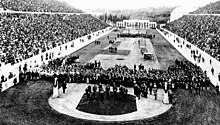
by Neera Sahni
The modern Olympics or Olympic Games are leading international sporting events featuring summer and winter sports. In these summer and winter sports competitions, thousands of athletes from over 200 nations participate in a variety of competitions. These games are considered the world's foremost sports competition. The Olympic Games are normally held every four years, alternating between the summer and winter Games every two years in the four-year period.
The Olympic Movement uses symbols, also known as the Olympic rings, to represent the ideals embodied in the Olympic Charter. The Olympic symbol represents the unity of the five inhabited continents - Africa, the Americas, Asia, Europe and Oceania. These colours, blue, yellow, black, green, and red, were chosen because every nation had at least one of them on its national flag. The flag was adopted in 1914 and was flown for the first time at the Summer Olympics in Antwerp, Belgium in 1920.

Creation of the Olympic Games was inspired by the ancient Olympic, which were held in Olympia, Greece, from the 8th century BC to the 4th century AD. Baron Pierre de Coubertin founded the International Olympic Committee in 1894.The First of modern Olympics Games was held in Athens in 1896. The International Olympic Committee is the governing body of the Olympic Movement, with the Olympic Charter defining its structure and authority.

Over the years and decades, some of the Olympic Games have been cancelled due to world wars in 1916, 1940, and 1944 Games. Moreover, the 2020 Tokyo Olympics Games were postponed to 2021 due to the COVID-19 pandemic.
1896 Games

The first Games held under the auspices of the International Olympic Committee was hosted in the Panathenaic Stadium in Athens in 1896. These games brought together 241 athletes from 14 nations and they participated in 43 events.
Evangelos Zappas, a wealthy Greek-Romanian philanthropist, offering to fund the 1896 Olympic Games. Evangelos Zappas and his cousin Konstantinos Zappas had left the Greek government a trust to fund future Olympic Games.
George Averoff, a Romanian businessperson and philanthropist contributed generously for the refurbishment of the stadium in preparation for the 1896 Olympics Games. The Greek government also provided funding. Part of that funding was to be recouped through the sale of the first Olympic commemorative stamp set and event tickets.
Greek officials and the public were enthusiastic about the experience of hosting an Olympic Games. This feeling was shared by many of the athletes, who even demanded that Athens be the permanent Olympic host city. The IOC intended for subsequent Games to be rotated to various host cities around the world. The second Olympics was held in Paris.
During the 20th and 21st centuries, evolution of the Olympic Movement has resulted in several changes to the Olympic Games. These adjustments include the creation of - Winter Olympic Games for snow and ice sports, Paralympic Games for athletes with a disability, Youth Olympic Games for athletes aged 14 to 18, Five Continental games: Pan American, African, Asian, European, and Pacific and World Games for sports, which are not contested in the Olympic Games.
Winter Olympic Games for snow and ice sports - The Winter Olympics was created to feature snow and ice sports that were logistically impossible to hold during the Summer Games. Figure skating was introduced in in 1908 and ice hockey in 1920 were featured as Olympic events at the Summer Olympics. Nevertheless, at the 1921 Olympic Congress in Lausanne, International Olympic Committee made the decision to hold a winter version of the Olympic Games.
Paralympic Games for athletes with a disability - Sir Ludwig Guttmann, in 1948, promoted the rehabilitation of soldiers after World War II. He organised a multi-sport event, known as the Stoke Mandeville Games, between several hospitals. This multi-sport event was to coincide with the 1948 London Olympics. For the next twelve years, Sir Ludwig Guttmann and his supporters continued their efforts to use sports as an avenue to healing. During 1960 Olympic Games in Rome, Sir Ludwig Guttmann brought 400 athletes to compete in the "Parallel Olympics”, which was known as the first Paralympics.
Youth Olympic Games for athletes aged 14 to 18 - In 2010, the Youth Games were also included in the Olympic Games. In the Youth Games, athletes between the ages of 14 - 18 were given the chance to compete. The Youth Olympic Games were conceived by International Olympic Committee president Jacques Rogge in 2001 and approved during the 119th Congress of the International Olympic Committee. The first Summer Youth Games were held in Singapore from 14–26 August 2010.
Cost of the games:
The Oxford Olympics Study 2016 found that sports-related costs for the Summer Games since 1960 were on average US $5.2 billion and for the Winter Games $3.1 billion. This does not include wider infrastructure costs like roads, urban rail, and airports, which often cost as much or more than the sports-related costs. The most expensive Summer Games were Beijing 2008 at US $40–44 billion.
Ceremonies:
Opening Ceremony: Various elements frame the opening ceremony of the Olympic Games. This is mentioned in the Olympic Charter and is mandatory. Opening ceremony takes place before the events have occurred.
The opening ceremony starts with the entrance of the president of the host country followed by the hoisting of the host country's flag and a performance of its national anthem. The host country then presents artistic displays of music, singing, dance, and theatre representative of its culture. After the artistic display, sspeeches are given and formally opening the Games. After this, finally, the Olympic torch is brought into the stadium and passed on until it reaches the final torch carrier, often a successful Olympic athlete from the host nation, who lights the Olympic flame in the stadium's cauldron.
Closing: The closing ceremony of the Olympic Games takes place at the end of all the sporting events. Flag-bearers from each participating country enter the stadium, followed by the athletes who enter together as a group. Three national flags are hoisted, the flag of the current host country; the flag of Greece - to honour the birthplace of the Olympic Games; and the flag of the country hosting the next Summer or Winter Olympic Games.
The president of the organising committee and the International Olympic Committee president make their closing speeches indicating that the Games are officially closed, and then the Olympic flame is extinguished.
Medal presentation: A medal ceremony is held at the end of each Olympic event. The winner, second and third-place competitors or teams stand on top of a three-tiered rostrum to be awarded their respective medals. An International Olympic Committee member gives out the medals; the national anthem of the gold medallist's country is played while national flags of the three medallists are raised.
As is customary, the last medal presentation of the Games is held as part of the closing ceremony.
![]()
Neera Sahni, Research Services Leader, Parramatta Heritage Centre, City of Parramatta, 2020
References:
• Beijing Olympics to cost China 44,000,000,000 dollars". Pravda News. 8 June 2008. Retrieved 28 August 2020
• 1896 Athina Summer Games". Sports Reference. Retrieved from archived on 25 August 2020. https://en.wikipedia.org/wiki/Olympic_Games
• "Closing Ceremony Factsheet" (PDF). The International Olympic Committee. 5 June 2012. Retrieved 28 August 2020
• "Closing Ceremony" (PDF). International Olympic Committee. 31 January 2002. Archived from the original (PDF) on 25 March 2009. Retrieved 28 August 2020.
• "Jeux Olympiques – Sports, Athlètes, Médailles, Rio 2016". International Olympic Committee. 22 October 2018.
• "Olympic Games – the Medal Ceremonies". Encyclopaedia Britannica. Retrieved 28 August 2020.
• "Overview of Olympic Games". Encyclopædia Britannica. Retrieved 28 August 2020
• "The Olympic Flags and Emblem". The Vancouver Organizing Committee for the 2010 Olympic and Paralympic Winter Games. Retrieved 28 August 2020.
• "The Latest: Rio Games close with samba-fueled Carnival party". The San Diego Union-Tribune. Associated Press. 21 August 2016. Retrieved 28 August 2020.
• "The Closing Ceremonies of the Olympic Game". International Olympic Committee. 1 June 2014. Retrieved 28 August 2020.


